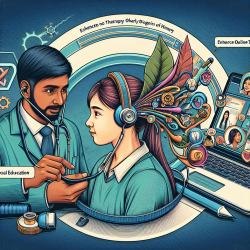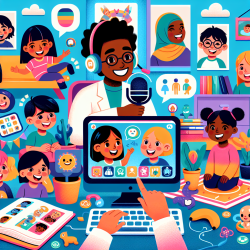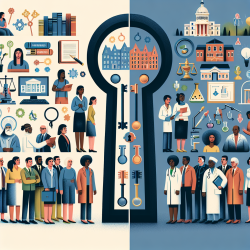Online therapy services have revolutionized the way we approach special education, offering unprecedented accessibility and flexibility. However, the effectiveness of these services can be significantly enhanced through the early diagnosis of hearing loss. Drawing on the findings from the 1978 Saskatoon Conference on Early Diagnosis of Hearing Loss, this blog explores how practitioners can improve their skills and thereby the outcomes for their clients by implementing or encouraging further research into early hearing loss diagnosis.
Early detection of hearing loss is pivotal in the development and implementation of effective therapeutic interventions. The conference highlighted the potential for accurate early diagnosis and provided guidelines for achieving this goal. For practitioners working in online therapy, understanding these guidelines can help in identifying signs of hearing loss sooner, leading to more timely and tailored interventions.
Here are several ways practitioners can incorporate the insights from the conference into their online therapy practices:
- Parent Involvement: Encourage active participation of parents in the diagnostic and treatment process. Parents can provide valuable insights into their child's behavior and responses in different environments, which can be crucial for early diagnosis.
- Comprehensive Diagnostic Methodologies: Utilize a range of medical and audiological assessments to diagnose hearing loss. Online therapy practitioners can collaborate with local healthcare providers to ensure comprehensive evaluations are conducted.
- Training and Education: Enhance your knowledge and skills through continuous education on the latest diagnostic techniques and treatment methodologies for hearing loss. This could involve attending workshops, webinars, or undertaking specific courses focused on hearing loss and online therapy.
- Use of Technology: Leverage technology to facilitate early diagnosis and treatment. This includes using audiometric testing tools that can be administered remotely and integrating apps or software that support hearing-impaired individuals in online therapy sessions.
Implementing these strategies not only improves the quality of online therapy services but also ensures that children with hearing loss receive the support they need to thrive. Early diagnosis and intervention are key to mitigating the potential impacts of hearing loss on communication, learning, and social interaction.
For practitioners interested in delving deeper into the research and recommendations from the 1978 Saskatoon Conference on Early Diagnosis of Hearing Loss, a wealth of knowledge awaits. Understanding the medical, audiological, and technological advancements in this field can transform your practice and significantly enhance the outcomes for your clients.
To read the original research paper, please follow this link: Early Diagnosis of Hearing Loss.










